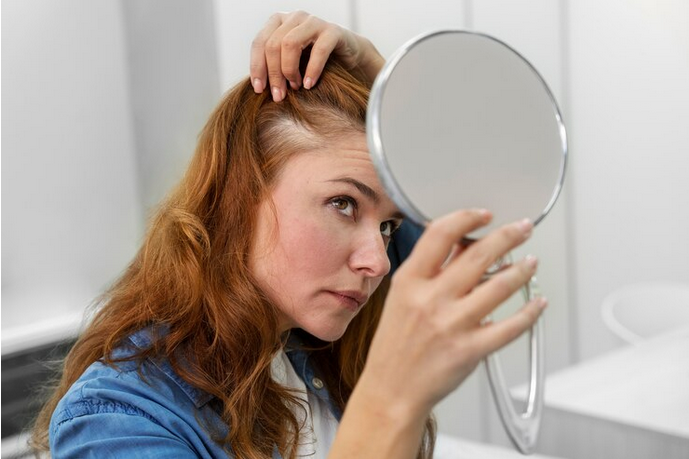Hair loss is a condition that transcends gender, affecting both men and women. While it's often associated with male pattern baldness, women also grapple with hair loss, albeit in different patterns and for various reasons. Hair is a critical element of a person's identity and self-esteem, and the emotional impact of hair loss can be profound for women. In recent years, hair transplants have emerged as an empowering solution for women struggling with hair loss. This comprehensive guide explores the reasons behind female hair loss, the transformative power of hair transplant for women, and how these procedures can empower women to regain their confidence and self-esteem.
Understanding Female Hair Loss
Hair loss in women can occur for various reasons, and it's essential to understand these factors before delving into the role of hair transplants. Some common causes of hair loss in women include:
1. Androgenetic Alopecia: This hereditary condition, often referred to as female pattern baldness, can lead to diffuse hair thinning, a widening part, and a noticeable decrease in hair volume. It's related to hormonal changes and genetics.
2. Telogen Effluvium: This is a condition characterized by a significant shedding of hair, usually due to stress, illness, childbirth, or nutritional deficiencies. While it's often temporary, it can be emotionally distressing.
3. Alopecia Areata: An autoimmune disorder that can cause patchy hair loss on the scalp or other parts of the body. It's not exclusive to women but can affect them as well.
4. Traction Alopecia: This type of hair loss is often a result of tight hairstyles or hair extensions that pull on the hair, causing it to break or fall out.
5. Other Factors: Other factors such as hormonal changes during menopause, certain medications, and underlying medical conditions can also contribute to hair loss in women.
For many women, hair loss is not just a physical concern; it's also a deeply emotional one. The loss of hair can lead to feelings of self-consciousness, reduced self-esteem, and even anxiety or depression.
The Transformative Power of Hair Transplants for Women
Hair transplants have traditionally been associated with men, but they are increasingly becoming a viable and empowering option for women as well. Here's how hair transplants can make a significant difference in the lives of women dealing with hair loss:
1. Restored Confidence: One of the most profound impacts of hair transplants is the restoration of confidence. For women who have experienced the emotional toll of hair loss, regaining a full head of hair can be life-changing. It allows them to feel more like themselves and take on the world with renewed self-assurance.
2. Natural-Looking Results: Hair transplant techniques have advanced significantly, leading to natural-looking results. Surgeons carefully consider the hairline design and the density of transplanted hair to ensure that the outcome blends seamlessly with the patient's existing hair.
3. Improved Self-Esteem: Hair loss can take a toll on self-esteem, making individuals feel less attractive or desirable. Hair transplants help women feel better about their appearance, which can positively impact their self-esteem and overall well-being.
4. Enhanced Styling Options: With a fuller head of hair, women have more styling options and can choose hairstyles that suit their preferences. This newfound freedom allows them to express themselves through their hair in ways they may not have been able to before.
5. Emotional Well-Being: Hair transplants can alleviate the emotional distress associated with hair loss. Women who have struggled with anxiety or depression due to their hair loss often experience a significant improvement in their emotional well-being post-transplant.
6. Greater Social Comfort: Hair loss can affect social interactions and relationships. Women who were previously self-conscious about their hair may feel more comfortable and confident in social settings after a successful hair transplant.
7. Long-Term Solution: Unlike some topical treatments or temporary solutions, hair transplants offer a more permanent solution to hair loss. Once the transplanted hair takes root, it continues to grow naturally, providing long-lasting results.
Considerations for Women Considering Hair Transplants
While hair transplants can be empowering for women, there are important considerations to keep in mind:
1. Consultation: A consultation with a qualified surgeon is essential. The surgeon can assess the extent of hair loss, discuss the most suitable transplant technique, and set realistic expectations for the results.
2. Hairline Design: Careful consideration of the hairline design is crucial to achieving a natural look. Surgeons work with patients to create a hairline that complements their facial features and age-appropriate.
3. Recovery: Understand the recovery process and be prepared for some downtime immediately following the procedure. Patients are typically advised to avoid strenuous activities and follow post-operative care instructions for optimal results.
4. Realistic Expectations: While hair transplants can provide excellent results, it's important to have realistic expectations. Transplants may not completely restore the original hair density, but they can significantly improve overall hair appearance.
5. Aftercare: Proper aftercare is crucial to the success of a hair transplant. Patients must follow the surgeon's instructions diligently to ensure that the transplanted hair takes root and grows as expected.
Conclusion
Hair transplants have become a powerful tool in the fight against hair loss for women. They offer an empowering solution that goes beyond physical restoration, encompassing emotional well-being, confidence, and self-esteem. For women who have struggled with the emotional toll of hair loss, the transformative power of hair transplants can be life-changing.
Empowering women to regain control over their appearance and self-esteem, hair transplants are more than just a cosmetic procedure; they are a path to renewed confidence and a brighter outlook on life. When considering a hair transplant, women should consult with a qualified surgeon to explore their options, set realistic expectations, and embark on their journey toward hair restoration and empowerment.





Comments